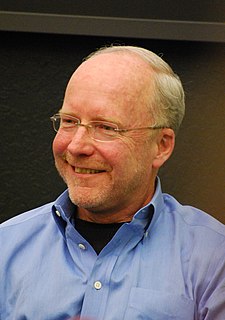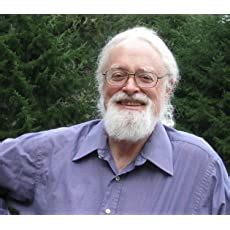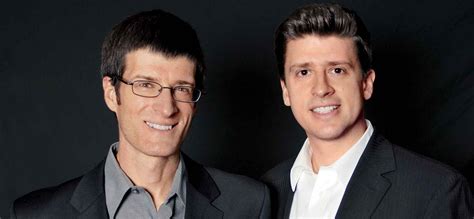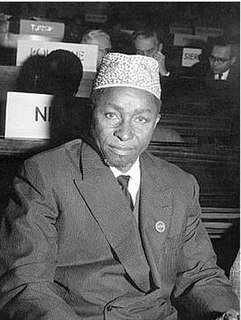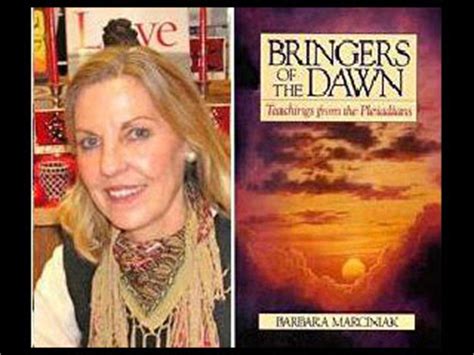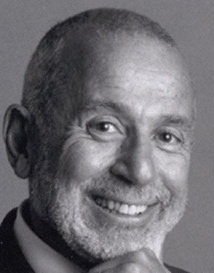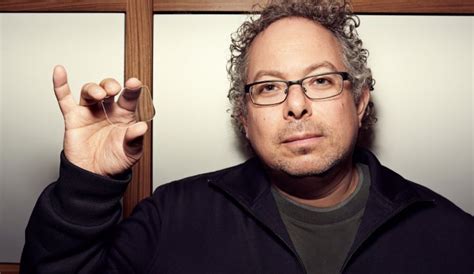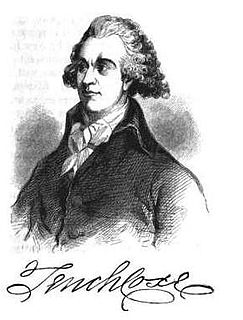Top 1200 Collective Knowledge Quotes & Sayings - Page 2
Explore popular Collective Knowledge quotes.
Last updated on November 20, 2024.
If we define 'thought collective' as a community of persons mutually exchanging ideas or maintaining intellectual interaction, we will find by implication that it also provides the special 'carrier' for the historical development of any field of thought, as well as for the given stock of knowledge and level of culture. This we have designated thought style.
Each is liable to panic, which is exactly, the terror of ignorance surrendered to the imagination. Knowledge is the encourager, knowledge that takes fear out of the heart, knowledge and use, which is knowledge in practice. They can conquer who believe they can. It is he who has done the deed once who does not shrink from attempting again.
True drama can be conceived only as resulting from the collective impulse of all the arts to communicate in the most immediate way with a collective public... Thus especially the art of tone, developed with such singular diversity in instrumental music, will realize in the collective artwork its richest potential -- will indeed incite the pantomimic art of dancing in turn to wholly new discoveries and inspire the breath of poetry no less to an undreamed-of fullness. For in its isolation music has formed itself an organ capable of the most immeasurable expression - the orchestra.
The knowledge we now consider knowledge proves itself in action. What we now mean by knowledge is information effective in action, information focused on results. Results are outside the person, in society and economy, or in the advancement of knowledge itself. To accomplish anything this knowledge has to be highly specialized.
To overcome our biological limitations as individuals, we have co-evolved collective systems and capacities - cultural, social, economic, political, scientific, media, educational, public relations, etc. But the flaw in all that is that we have designed them primarily for comfort, profit, power, control, and entertainment rather than for collective intelligence, sanity, and wisdom.
Our problem is that the climate crisis hatched in our laps at a moment in history when political and social conditions were uniquely hostile to a problem of this nature and magnitude-that moment being the tail end of the go-go '80s, the blastoff point for the crusade to spread deregulated capitalism around the world. Climate change is a collective problem demanding collective action the likes of which humanity has never actually accomplished. Yet it entered mainstream consciousness in the midst of an ideological war being waged on the very idea of the collective sphere.
Wisdom and knowledge can best be understood together. Knowledge is learning, the power of the mind to understand and describe the universe. Wisdom is knowing how to apply knowledge and how not to apply it. Knowledge is knowing what to say; wisdom is knowing whether or not to say it. Knowledge gives answers; wisdom asks questions. Knowledge can be taught, wisdom grows from experience.
Much more than an entertaining set of exaggerated facts, fiction is a metaphoric method of describing, dramatizing and condensing historical events, personal actions, psychological states and the symbolic knowledge encoded within the collective unconscious; things, events and conditions that are otherwise too diffuse and/or complex to be completely digested or appreciated by the prevailing culture.
Collective bargaining has always been the bedrock of the American labor movement. I hope that you will continue to anchor your movement to this foundation. Free collective bargaining is good for the entire Nation. In my view, it is the only alternative to State regulation of wages and prices - a path which leads far down the grim road of totalitarianism. Those who would destroy or further limit the rights of organized labor - those who would cripple collective bargaining or prevent organization of the unorganized - do a disservice to the cause of democracy.
We should not be content to say that power has a need for such-and-such a discovery, such-and-such a form of knowledge, but we should add that the exercise of power itself creates and causes to emerge new objects of knowledge and accumulates new bodies of information. ... The exercise of power perpetually creates knowledge and, conversely, knowledge constantly induces effects of power. ... It is not possible for power to be exercised without knowledge, it is impossible for knowledge not to engender power.
We have heard of a Society for the Diffusion of Useful Knowledge. It is said that knowledge is power, and the like. Methinks there is equal need of a Society for the Diffusion of Useful Ignorance, what we will call Beautiful Knowledge, a knowledge useful in a higher sense: for what is most of our boasted so-called knowledge but a conceit that we know something, which robs us of the advantage of our actual ignorance? What we call knowledge is often our positive ignorance; ignorance our negative knowledge.
It's very important to distinguish between what most people in the West think about knowledge, and what the Indian concept of knowledge is. In the West the knowledge is something that is tangible, is material, it is something that can be transferred easily, can be bought and sold; or as in India real knowledge is something that is a living being - is a Vidya.
The people of Earth are emerging from an amnesiac-like state of collective shock, which has blocked the influx of spiritual knowledge into the human gene pool. And while it is quite obvious to many that “You create your reality”, the vast majority of humans still need to be awakened from the unconsciously controlled trance of powerlessness that they voluntarily took on.
The Christian religion, [Pascal] claims, teaches two truths: that there is a God who men are capable of knowing, and that there is an element of corruption in men that renders them unworthy of God. Knowledge of God without knowledge of man's wretchedness begets pride, and knowledge of man's wretchedness without knowledge of God begets despair, but knowledge of Jesus Christ furnishes man knowledge of both simultaneously.
To oppose knowledge is ignorant, and he who detests knowledge and science is not a man, but rather an animal without intelligence. For knowledge is light, life, felicity, perfection, beauty and the means of approaching the Threshold of Unity. It is the honor and glory of the world of humanity, and the greatest bounty of God. Knowledge is identical with guidance, and ignorance is real error
Playing games is the dessert. Our real market is people doing everyday things. Rather than pulling your mobile phone in and out of your pocket, we want to create an all-day flow; whether you're going to the doctor or a meeting or hanging out, you will all of a sudden be amplified by the collective knowledge that is on the web.
As our president bears no resemblance to a king so we shall see the Senate has no similitude to nobles. First, not being hereditary, their collective knowledge, wisdom, and virtue are not precarious. For by these qualities alone are they to obtain their offices, and they will have none of the peculiar qualities and vices of those men who possess power merely because their father held it before them.
Despite popular theories, I believe people fall in love based not on good looks or fate but on knowledge. Either they are amazed by something a beloved knows that they themselves do not know; or they discover a common rare knowledge; or they can supply knowledge to someone who's lacking. Hasn't everyone found a strange ignorance in someone beguiling? . . .Nowadays, trendy librarians, wanting to be important, say, Knowledge is power. I know better. Knowledge is love.
Opportunism towards knowledge is a utilitarian demand that knowledge must be immediately practical. Just like with sociology where we hope its purpose is to serve society, however, the true purpose of sociology lies in its impracticality. It cannot become practical or else it loses its meaning. Perhaps we should learn a different kind of knowledge: the knowledge to question knowledge.
It is the individual's task to differentiate himself from all the others and stand on his own feet. All collective identities . . . interfere with the fulfillment of this task. Such collective identities are crutches for the lame, shields for the timid, beds for the lazy, nurseries for the irresponsible. . . .
Children, who have so much to learn in so short a time, had involved the tendency to trust adults to instruct them in the collective knowledge of our species, and this trust confers survival value. But it also makes children vulnerable to being tricked and adults who exploit this vulnerability should be deeply ashamed.
The utmost the American novelist can hope for, if he hopes at all to see his work included in the literature of his time, is that it may eventually be found to be along in the direction of the growing tip of collective consciousness. Preeminently the novelist's gift is that of access to the collective mind.
A “collective” mind does not exist. It is merely the sum of endless numbers of individual minds. If we have an endless number of individual minds who are weak, meek, submissive and impotent – who renounce their creative supremacy for the sake of the “whole” and accept humbly that the “whole’s” verdict – we don’t get a collective super-brain. We get only the weak, meek, submissive and impotent collective mind.
This society in which knowledge workers dominate is in danger of a new "class conflict" between the large minority of knowledge workers and the majority of workers who will make their livings through traditional ways, either by manual work... or by service work. The productivity of knowledge work - still abysmally low - will predictably become the economic challenge of the knowledge society. On it will depend the ability of the knowledge society to give decent incomes, and with them dignity and status, to non knowledge people.



